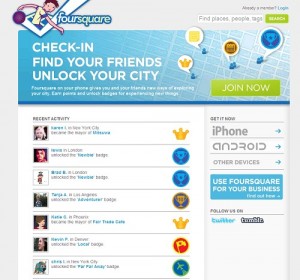 Disclaimer: I’m not a doctor. Don’t pretend to be one. Heck, I don’t even want to be one. But, I do have a minor in psychology, which clearly makes me an expert in the psychology of Twitter (wink wink).
Disclaimer: I’m not a doctor. Don’t pretend to be one. Heck, I don’t even want to be one. But, I do have a minor in psychology, which clearly makes me an expert in the psychology of Twitter (wink wink).
As with any social platform, there is a whole side to this equation that’s heavy on the psychology. Getting to why people behave the way they do online. As a 13-year PR/marketer, I’ve always been inquisitive. And, that often lends itself to asking a lot of questions about why people make the choices they make and act they way they do. People’s actions on Twitter are really no different than their actions in real life? Or, are they?
I thought I’d highlight a few specific scenarios, share my amateur (emphasis on AMATEUR) opinions of why people behave this way online and outline what it may mean for your brand:
* Live tweeting events. If you’ve spent any amount of time on Twitter, you’ve undoubtedly participated in live tweeting some kind of sporting event, TV show or political speech you attended or watched from the couch. For me, it’s been college basketball (Gopher games at the Barn) and other sporting events on TV. Just take a look at the trending topics on any given day. Most likely a number of them have to do with some sort of live event that day. Why do we feel compelled to tweet during these events? I mean, aren’t there broadcasters who get paid to relay the action right to us on TV? Why the need for the added commentary? Because we want to feel connected. We want to share our thoughts with others and have them validated.
What does this mean for brands? Usually, people are live tweeting events where they have a tremendous passion, or a discerning interest, in the sports team on the field, the music star on stage or the political figure giving a speech. Find out what your customers are really passionate about. It might not necessarily be your products or services, but it may be a way they use your product or service. Whatever the case, identify that passion and provide them forums to talk about it and add your two cents.
 * The FourSquare Dilemma. Last I heard, FourSquare was growing at a rate of 50 percent per month. That might not seem all that significant considering they’re starting with a smaller user base, but those numbers will start to add up, eventually. Anecdotally, since I start using FourSquare more actively about a month ago, I’ve noticed the number of folks participating increasing (not a ton, but enough to pay attention). Why the infatuation with FourSquare? What’s so great about telling people where you are and leaving short comments about the food or experience? Everyone has their favorite places. And, we all like to talk about them. Don’t we? FourSquare just gives people another way to do that. On their phones. During the actual experience. And, as more people start using smart phones and FourSquare expands its capabilities, I think this tool may explode in 2010.
* The FourSquare Dilemma. Last I heard, FourSquare was growing at a rate of 50 percent per month. That might not seem all that significant considering they’re starting with a smaller user base, but those numbers will start to add up, eventually. Anecdotally, since I start using FourSquare more actively about a month ago, I’ve noticed the number of folks participating increasing (not a ton, but enough to pay attention). Why the infatuation with FourSquare? What’s so great about telling people where you are and leaving short comments about the food or experience? Everyone has their favorite places. And, we all like to talk about them. Don’t we? FourSquare just gives people another way to do that. On their phones. During the actual experience. And, as more people start using smart phones and FourSquare expands its capabilities, I think this tool may explode in 2010.
Brands would be wise to pay attention. Many restaurants and hotels are already catering to the FourSquare audience with “mayor rewards” and special offers for those who play on FourSquare. But, with geo-tagging and augmented reality on the horizon, I feel like we’ve just merely scratched the surface. Very soon, customers will have a whole new way to “crowd-source” their decisions for picking a restaurant on any given night. They’ll have more ways to compare and contrast pricing, deals and specials while they’re mobile. The ingredients are here for a perfect storm in 2010 that will lead to substantial opportunities for brands down the line.
* “Please RT.” I made a statement on Twitter last week that said “Why do people insist on using “Please RT”? If I find the info valuable/insightful, I’ll RT it. If I don’t, I won’t. Am I missing something?.” It stirred up some passionate conversation. Now, the research clearly proves me wrong on this point, but I stand by my claim. I know there are a number of key words that have been proven to get your tweets passed along (and yes, “Please RT” is among them), but I just think it sounds a little desperate. I know there are times when you want to ask your community–or your customers–for a favor. But, I think there are other ways to go about this. Maybe a series of DMs through the back channel? Maybe its even part of an email you send out to those customers who follow you on Twitter? Like I said, I think there are more tactful ways.
Not to mention, when you’re representing a brand on Twitter, I just think you need to think about more than just how to get your tweets passed along. That’s just one piece of the equation. You need to consider your reputation. And, using phrases like “Please RT”, in my view, may impact that reputation (even if it is just a bit). If you provide content that is valuable, relevant and interesting, people will RT it all on their own. And that will enhance your image.
OK, it’s your turn to dole out some amateur psychology lessons. Or, maybe you want to call me a hack. Go ahead, I have thick skin 😉

0 Comments